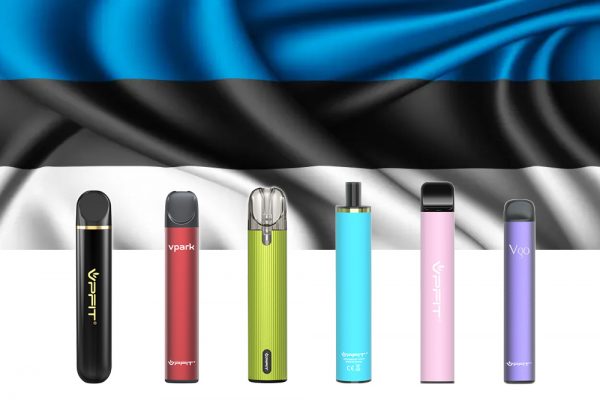
Italy Health Minister proposal to ban vape in public places
March 8, 2023
Chinese Academy Of Sciences Report Nicotine Can Resist Aging
March 10, 2023Estonian columnist Mayyada Abdel Salam said that the current method of monitoring e cigarette in Estonia is wrong; The government should not focus on restricting access, but should give priority to promoting healthy lifestyles.
In recent years, vapes have become a major concern of young people around the world, leading governments to regulate or prohibit the products. In Estonia, 24100 people use vapes. Although it is allowed to sell electronic cigarettes, the use of electronic cigarettes in public places and their promotion, sponsorship and advertising are subject to legal restrictions.
On November 15, 2022, Estonian Minister of Social Affairs Pip Peterson promised to take measures to limit minors’ exposure to tobacco products, including disposable and flavored vape pen. However, the promised measures are unlikely to effectively solve the problem of electronic cigarettes.
There is no significant progress in treating adults like as children.
The European Union has always treated adults as children under the guise of public health, but this practice has made little progress in achieving its initial goals. Despite repeated attempts to regulate the use of vape pens, Estonia has failed, but the use rate of vape pen is still high, ranking third in the nanny state index in 2019, and is one of the most expensive countries for food, drink and tobacco consumption.
It is noteworthy that the government has more urgent issues to pay attention to. For example, obesity has become the biggest health threat in Estonia. According to the data of the World Health Organization, 53.7% of Estonian adults over the age of 20 are overweight and 20.6% are obese.
In Europe, the concept of freedom revolves around four key freedoms, which regulate the flow of goods, people, services and capital within the EU. This is considered to be the culmination of European unification efforts, and EU governments should be consistent with these freedoms when formulating and implementing policies. Unfortunately, today’s youth smoking rate is very high, but it must be remembered that the decision to smoke rests with the family, not the government.
The sale of e-cigarettes is allowed, but the use of e-cigarettes in public places and in advertising, promotion and sponsorship is restricted by law. The plain text health warning must cover 30% of the front and back of the electronic cigarette package.
The government should avoid paternalistic policies
Only tobacco and menthol flavors are allowed, and the sale of electronic cigarettes to people under the age of 18 is prohibited. Since 2019, Estonia has banned the purchase of flavoring electronic cigarette oil from abroad, but it was not clear at first whether the ban was applicable, and the flavoring additive was sold separately.
Estonia’s current method of regulating electronic cigarettes is wrong and may have unexpected consequences. The government should not focus on restricting access to products, but should give priority to promoting healthy lifestyles through education and incentives. Electronic cigarettes are personal choices, which should be decided by individuals and their families.
The EU’s concern about freedom should extend to this issue. The government should avoid paternalistic policies that may promote the black market and make electronic cigarettes more accessible to minors. It is time for the government to reassess its position on e-cigarettes and give priority to evidence-based solutions that have a lasting impact on public health.
The focus should be on educating and empowering individuals to make wise choices about their health, rather than simply trying to limit access to products. The EU’s commitment to freedom and unity should extend to this issue, and Estonian officials should strive to promote a balanced and effective approach to e-cigarettes.






